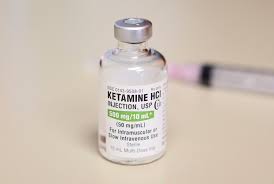The investigation into the death of “Friends” star Matthew Perry has uncovered a sweeping indictment involving five individuals accused of contributing to his ketamine overdose in October. This group includes two doctors and a street dealer implicated in providing Perry with large amounts of the potent anesthetic. The case has revealed that Perry was injected with ketamine at least three times on the day he died.
Ketamine, a powerful anesthetic approved for surgical use by U.S. health regulators, can be administered via intramuscular injection or IV. Related to the recreational drug PCP, ketamine is sometimes used for its euphoric effects and can cause hallucinations, breathing issues, and heart problems.
In recent years, ketamine has gained popularity as an off-label treatment for depression, anxiety, and pain, despite not being officially approved for these conditions. Perry was using ketamine to manage his depression, receiving infusion therapy from his doctors. However, when these physicians declined to prescribe additional doses, Perry sought the drug from other sources. Prosecutors allege that he obtained ketamine through a network involving two doctors, his assistant, and a woman referred to as the “Ketamine Queen.” His assistant, who has since pleaded guilty to conspiracy to distribute ketamine causing death, administered the drug to Perry multiple times on the day of his death.
U.S. Attorney Martin Estrada emphasized that this case involves abuse of medical trust and licenses, rather than legitimate treatment. “We’re talking about two doctors who abused the trust they had, abused their licenses to put another person’s life at risk,” Estrada stated.
Additionally, ketamine has been used by paramedics as a sedative in situations involving out-of-control subjects, often in conjunction with police. However, this practice has faced scrutiny, particularly after the 2019 death of Elijah McClain in Colorado, which led to the conviction of two paramedics for administering an overdose of ketamine. An investigation by The Associated Press has revealed that the use of ketamine and other sedatives on individuals detained by police has quietly expanded over the past 15 years, backed by controversial science and support from police-aligned experts.
































